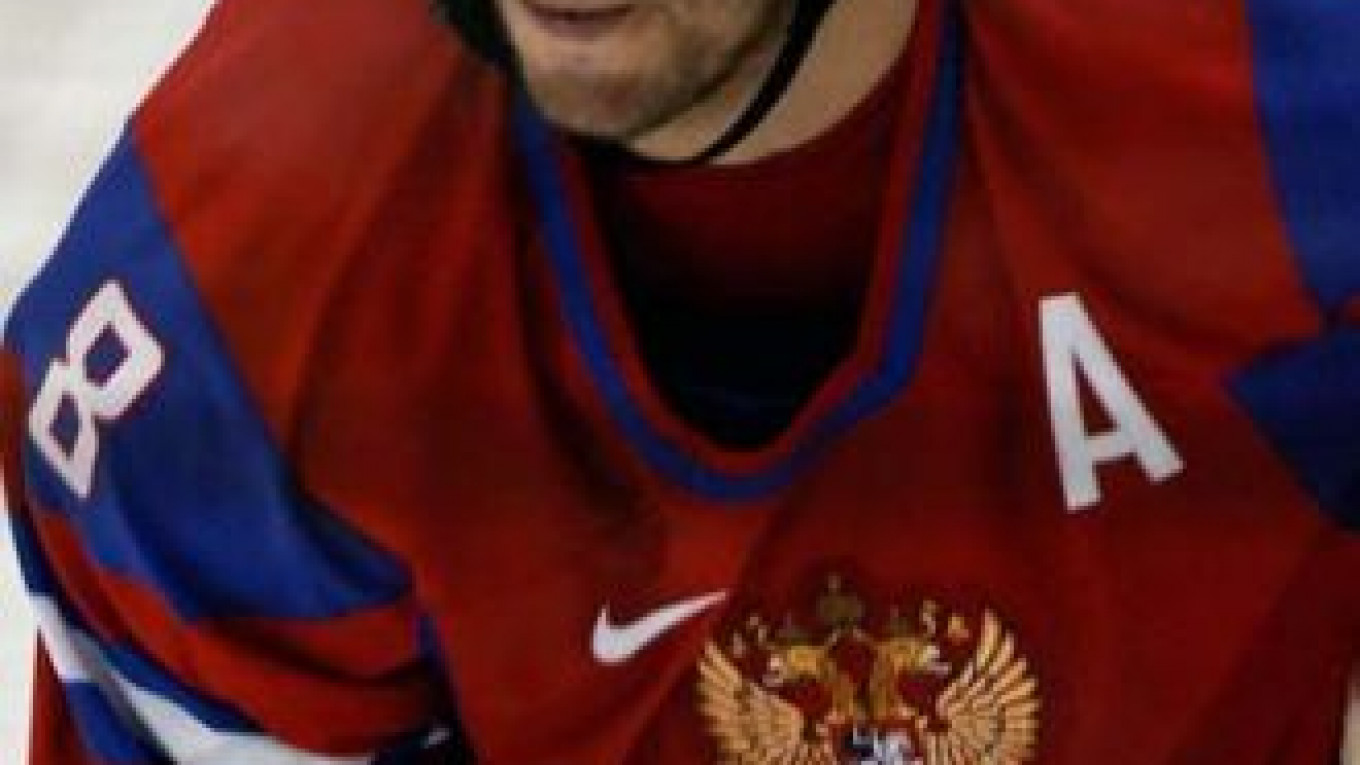Tatyana Ovechkina is the human bridge between Moscow 1980 and Sochi 2014. No time travel required.
Born in Moscow in 1950, Ovechkina was a star basketball player on the Soviet national team that won two Olympic gold medals in Moscow and Montreal, the 1975 World Championships and six European Championships, successes that earned her the Soviet Order of the Badge of Honor and the Order of Friendship of Peoples.
Another of Ovechkina's many successses has been raising Russia's most recognizable hockey player, her son Alexander Ovechkin.
The younger Ovechkin, an all-star winger for the Washington Capitals, will compete in his third Olympic Games in Sochi, 34 years after his mother triumphed in Moscow.
Ovechkina spoke to The Moscow Times about her experience at the 1980 Moscow Games.
Q: Your son Alexander will experience the Olympics in today's Russia, and you experienced them in the Soviet Union. Do you think your respective Olympic experiences will be comparable?
A: I cannot say anything about Sochi. I do not know how it is going to be. I only wish that Alexander's experience in Sochi will be just as wonderful as mine was in Moscow.
The Moscow Olympics really showcased athletes at the highest level. Everything was fantastic.
We were very well fed, and there were all sorts of concerts and performances as part of the cultural program. We were housed in nice apartments and everything was taken care of for us.
Q: Do you think the boycott of the 1980 Moscow Olympic ruined the Games?
A: No, I do not think the boycott spoiled the Games. The level of play was still very high and the atmosphere was great, in spite of the boycott.
The atmosphere in Moscow in the summer of 1980 was very friendly and welcoming.
We athletes all knew each other well. We even made friends with Bulgarian and Czech women's basketball teams.
It was a shame, of course, that the Americans were not there. But it wasn't a problem, we still had a great tournament.
Q: What kind of changes did you notice in Moscow during the Games?
A: Moscow really changed a lot during the Games. There were very few people in the streets and no traffic jams. The city was quiet and calm.
But I guess we also had a great feeling of calm because we were at home, in our country and our hometown.
Contact the author at g.tetraultfarber@imedia.ru
A Message from The Moscow Times:
Dear readers,
We are facing unprecedented challenges. Russia's Prosecutor General's Office has designated The Moscow Times as an "undesirable" organization, criminalizing our work and putting our staff at risk of prosecution. This follows our earlier unjust labeling as a "foreign agent."
These actions are direct attempts to silence independent journalism in Russia. The authorities claim our work "discredits the decisions of the Russian leadership." We see things differently: we strive to provide accurate, unbiased reporting on Russia.
We, the journalists of The Moscow Times, refuse to be silenced. But to continue our work, we need your help.
Your support, no matter how small, makes a world of difference. If you can, please support us monthly starting from just $2. It's quick to set up, and every contribution makes a significant impact.
By supporting The Moscow Times, you're defending open, independent journalism in the face of repression. Thank you for standing with us.
Remind me later.






